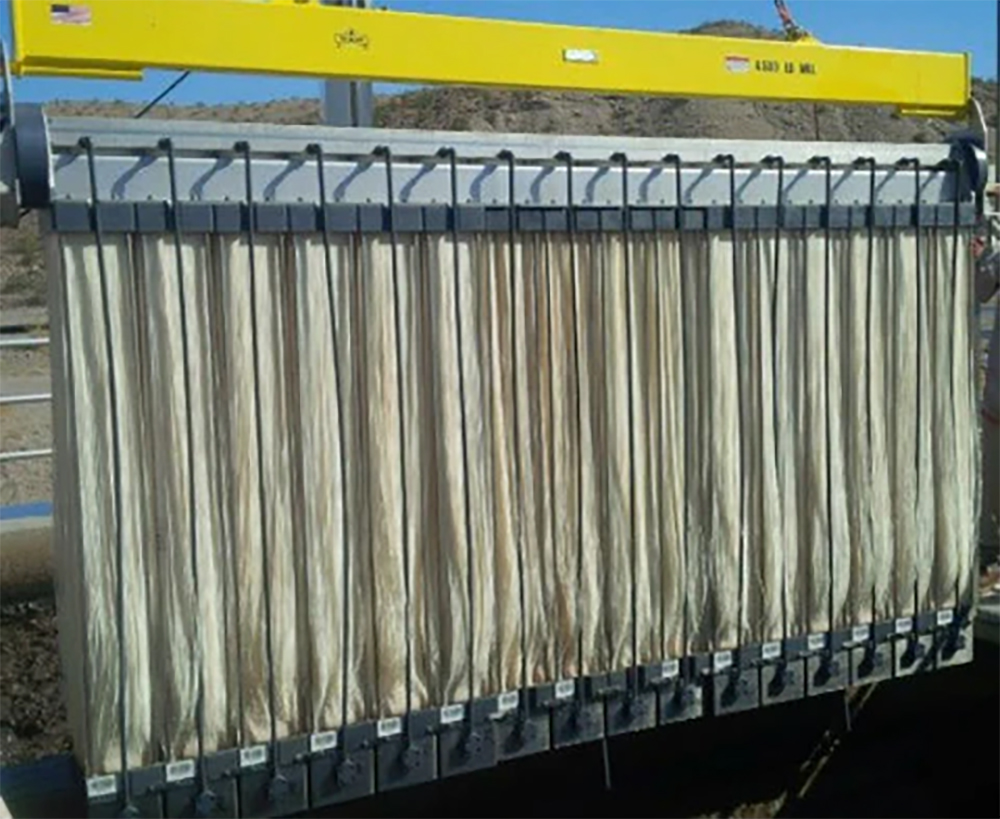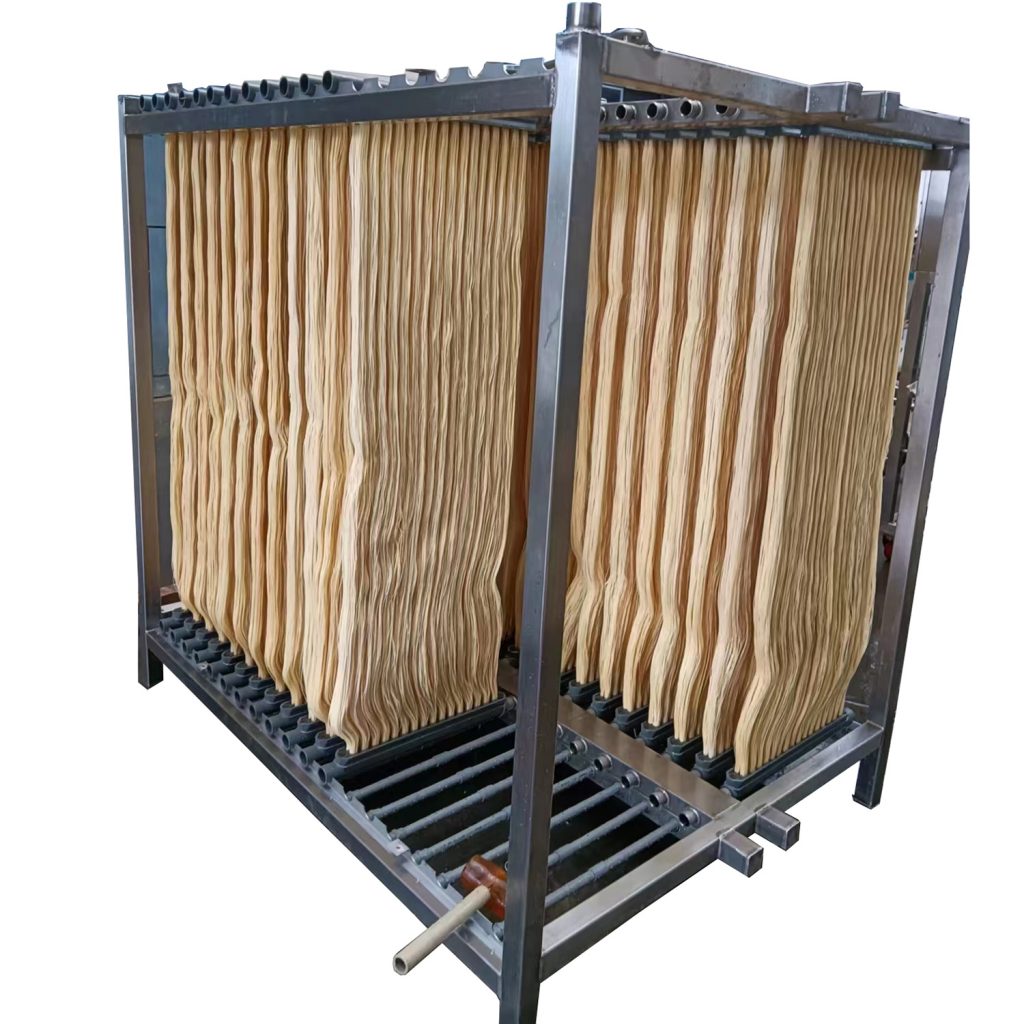Innovations in Membrane Bioreactor Technology for Enhanced Environmental Sustainability
Innovations in Membrane Bioreactor Technology for Enhanced Environmental Sustainability
Blog Article
The Benefits of Membrane Bioreactors in Sustainable Wastewater Administration
Membrane layer bioreactors (MBRs) stand for an essential innovation in sustainable wastewater management, efficiently merging organic therapy with innovative membrane layer filtering modern technology. As the demand for lasting remedies heightens, checking out the diverse advantages of MBRs might expose unanticipated implications for the future of wastewater treatment systems.
Introduction of Membrane Bioreactors
Membrane layer bioreactors (MBRs) represent a substantial advancement in wastewater treatment technology, incorporating biological deterioration with membrane purification to improve the performance of the treatment process. This innovative system combines the advantages of standard activated sludge processes with membrane modern technology, enabling enhanced solid-liquid separation. MBRs use semi-permeable membrane layers to separate treated water from biomass, leading to top notch effluent that can be recycled or securely discharged right into the setting.
The operational layout of MBRs generally includes a bioreactor where bacteria break down natural matter, adhered to by a membrane unit that filters the combined alcohol. This configuration not just decreases the footprint of the therapy facility yet also enables for higher biomass focus and lowered hydraulic retention times. MBRs are qualified of treating a broader array of contaminants, including nutrients and virus, making them ideal for numerous applications, from municipal wastewater treatment to industrial effluent processing.
The combination of MBRs into wastewater administration systems is a measure of an expanding pattern towards efficient and sustainable practices in ecological design. Their capacity to create high-grade effluent while lessening space demands settings MBR technology as a principal in modern wastewater therapy options.
Boosted Effluent Top Quality

The membrane purification process serves as a physical barrier, enabling the retention of microorganisms and particle matter, which adds to a clearer and cleaner effluent (Membrane Bioreactor). MBRs operate at greater biomass focus than conventional triggered sludge systems, advertising a lot more effective biodegradation of pollutants. This brings about a reduction in biochemical oxygen need (BODY) and complete put on hold solids (TSS) levels in the last effluent
In addition, MBRs show exceptional performance in dealing with challenging wastewater make-ups, such as industrial effluents and wastewater with high nutrient lots. Consequently, the effluent produced is often of better, enabling for more versatile disposal choices and minimized ecological effect. Ultimately, the boosted effluent top quality attained through MBR technology highlights its important function in progressing sustainable wastewater administration methods.
Water Reuse Opportunities
The high-grade effluent created by membrane layer bioreactors (MBRs) opens up considerable opportunities for water reuse in various applications. MBRs efficiently remove impurities, consisting of virus, suspended solids, and natural issue, causing treated water that satisfies or exceeds regulatory criteria for reuse. This high quality enables the implementation of water recycling initiatives throughout varied sectors.
One noticeable application is in farming, where treated wastewater can be made use of for watering, promoting sustainable farming techniques while conserving fresh water resources. In addition, MBR-treated effluent can be made use of for commercial processes such as cooling, cleaning, and as a process water resource, dramatically decreasing the need for safe and clean water in these procedures.
In city settings, MBRs more info here assist in using recovered water for landscape irrigation, toilet flushing, and various other non-potable usages, adding to the general resilience of water supply systems. In addition, the integration of MBR modern technology in decentralized systems help in handling local water needs, particularly in water-scarce regions.
Lowered Environmental Impact
Just how can the adoption of membrane bioreactors (MBRs) add to a minimized environmental effect in wastewater administration? MBRs dramatically boost the treatment efficiency of wastewater while minimizing ecological disruptions. Membrane Bioreactor.
In addition, MBRs run at lower hydraulic retention times compared to conventional systems, resulting in smaller treatment plant impacts. This portable style click over here now lowers land usage, consequently maintaining all-natural environments and biodiversity. The process likewise creates much less sludge than conventional methods, reducing disposal challenges and reducing greenhouse gas discharges connected with sludge monitoring.
Furthermore, MBRs facilitate the healing of useful resources, such as water and nutrients, adding to a circular economic climate. By enabling water reuse for irrigation or commercial processes, MBRs assist relieve freshwater shortage, hence promoting sustainable water utilize methods. Eventually, the adoption of MBR technology stands for a considerable stride towards reducing redirected here the ecological impact of wastewater monitoring systems.
Economic Benefits of MBRs

In addition, MBRs facilitate the production of top notch effluent, which can be recycled for various applications, such as farming irrigation and commercial processes - Membrane Bioreactor. This reuse capacity can significantly reduce water procurement expenses, providing a financial motivation for industries encountering rigorous water guidelines
The portable layout of MBR systems additionally causes reduced land needs, which is specifically useful in metropolitan locations where genuine estate is pricey. By minimizing space, communities and sectors can save on land purchase and upkeep expenditures.
Moreover, MBRs often need much less frequent maintenance and have a longer life-span than traditional systems, even more contributing to cost financial savings. In summary, the economic advantages of MBRs-- ranging from reduced operational prices to land cost savings and effluent reuse-- make them a compelling selection for sustainable wastewater monitoring, supplying both prompt and long-lasting monetary benefits.
Conclusion
Additionally, MBRs contribute to decreased environmental impacts through portable designs and lower sludge generation. Economic advantages further boost their viability, making MBRs a promising option for addressing the challenges of wastewater treatment and advertising lasting source administration.
Membrane layer bioreactors (MBRs) represent a critical advancement in sustainable wastewater monitoring, successfully merging organic therapy with advanced membrane layer filtration modern technology.Membrane bioreactors (MBRs) stand for a substantial advancement in wastewater treatment technology, incorporating biological degradation with membrane filtration to boost the effectiveness of the therapy process.Accomplishing enhanced effluent top quality is one of the most substantial benefits of making use of membrane bioreactors (MBRs) in wastewater treatment.Additionally, MBRs show superb performance in dealing with tough wastewater make-ups, such as industrial effluents and wastewater with high nutrient loads.Integrating membrane layer bioreactors (MBRs) into wastewater administration not just minimizes ecological impact yet additionally presents substantial economic benefits.
Report this page